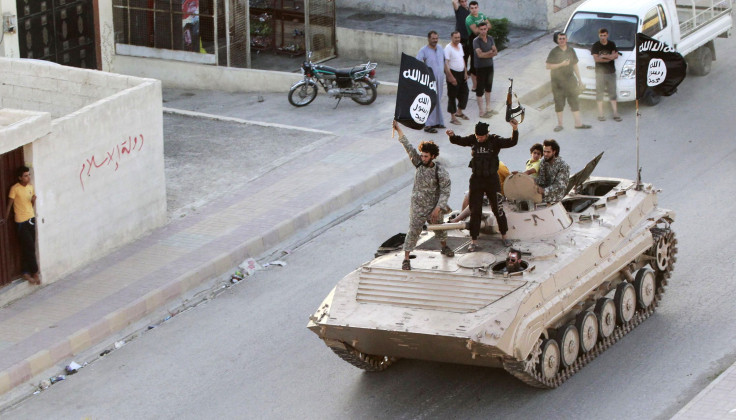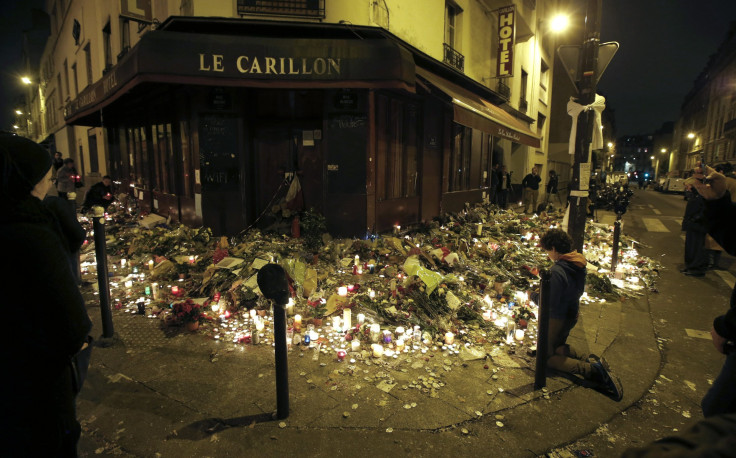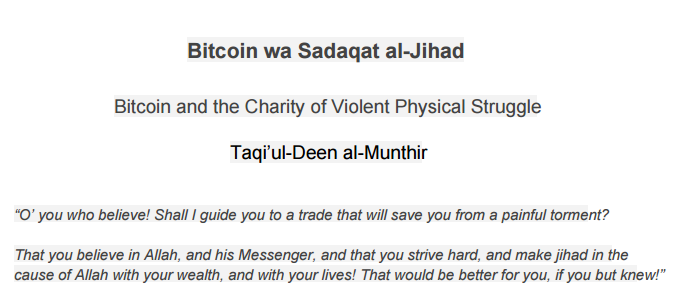Paris Attacks Highlight Difficulty Of Stemming ISIS’ Terror Financing

In the aftermath of the brutal attacks in Paris last week, politicians have set their sights on cutting off sources of terrorist funding. Public figures from French President Francoise Hollande to U.S. businessman Donald Trump have proposed smashing the financial machinery that keeps the self-described Islamic State group operating across borders.
“I've been saying attack the oil for two years,” Trump told CNBC on Friday.
But while those efforts might cramp the expansion of the Islamic State group -- also known as ISIS, ISIL and Daesh -- within Iraq and Syria, experts see only a tenuous connection between ISIS’ lucrative trade in oil and antiquities and its ability to direct or inspire attacks abroad.
“These are attacks that tend to cost in the low thousands and are often self-financed through different types of criminal enterprise,” said Matthew Levitt, director of the Stein Program on Counterterrorism and Intelligence at the Washington Institute for Near East Policy.
Though it was conceivable that ISIS could have routed funds to the attackers, Levitt said that an assault on ISIS’ funding wouldn’t prevent similar attacks in the future. “We should not put this out there as a panacea,” Levitt said.
Blocking ISIS Out
Last week's attacks shocked Europeans with their brazenness and seeming complexity. Three groups of assailants set off suicide bombs and gunned down unsuspecting Parisians at six different sites, including a soccer stadium and a theater. ISIS claimed responsibility for the attacks, which left at least 129 dead and hundreds more injured.

The plot, hatched in Belgium, came together even as financial authorities the world over tightened restrictions on financial institutions within and around the territories held by the Islamic State group, which has relied on a combination of grassroots fundraising and criminal activity to build its multibillion-dollar warchest.
The Iraqi government instructed banks to forbid wire transfers to and from ISIS-held areas like Mosul. In war-ravaged Syria, the government has allowed some banks in ISIS-controlled regions to continue operating. But the U.S. Treasury Department and its European Union counterpart have issued sanctions effectively prohibiting international financial institutions from approving transfers into or out of Syria.
“Banks in the Islamic State-controlled areas are no longer connected to the international financial system,” said Levitt, who formerly worked at the Treasury Department’s anti-terrorism branch. Despite the persistence of what he calls “backdoor banking,” in which ISIS operatives retrieve cash transfers in states bordering ISIS strongholds, “there has been great success blocking them out,” Levitt said.
Christine Duhaime, a Canadian lawyer and expert on terror financing, was less confident. “ISIS is for sure using our banking system,” Duhaime told International Business Times, noting the use of border states to receive donations. “They couldn’t survive without having many bank accounts.”
The Financial Action Task Force (FATF), an intergovernmental body that has scrutinized ISIS finances, has warned that standard anti-money-laundering tools may be no match for ISIS’ decentralized, Web-savvy fundraising apparatus. “Traditional countermeasures,” the FATF wrote in February, “are not applicable with respect to this new model adopted by [ISIS].”
A Light Footprint
According to Treasury Department estimates, ISIS raised more than $120 million from oil sales, robberies and ransom payments in 2014. But not all of ISIS’ activities require large investments. While the campaign of murder, pillage, rape and extortion that marks the Islamic State’s advance across wide swaths of Iraq and Syria does entail high costs, one-off international plots like those in Paris, Lebanon and Texas have been comparatively low-budget.
Michael Smith, co-founder of defense consultancy Kronos Advisory, said attacks like the one carried out in Paris leave a light financial footprint. “That plot doesn’t really cost much to mobilize,” said Smith, noting that groups like ISIS prize low-cost, high-impact strategies. “They want to be able to boast how little they spend on attacks.”
In some cases, lone-wolf attackers sympathetic to the Islamic State group can carry out attacks without any ISIS funding. That was the case for Michael Zehaf-Bibeau, the Canadian gunman who financed his 2014 attack on the Canadian Parliament by working in the Alberta oil sands.
The Paris attacks required far more coordination and equipment, including several Kalashnikov rifles, which sell on the French black market for upwards of 1,000 euros ($1,070). Yet experts said the attackers could have financed the attacks through petty crime, day jobs or even bank loans.
Gold Dinars And Bitcoins
In the face of an international crackdown on transfers, ISIS has embraced novel Internet technologies even as it has embarked on the decidedly old-school practice of minting gold dinars. Both strategies represent attempts to navigate financial obstacles such as its international banking blackout and the unwieldiness of carrying sacks of cash.
Part of that has meant taking to sites like Twitter and Ask.fm to solicit donations. “A lot of the terrorist financing activity is generated from social media outreach,” Duhaime said. “We haven’t kept up the with modern tech side.”
The FATF has compared ISIS’ fundraising model to those pioneered by companies like Kickstarter. “Low-level contributors, prompted by group actions which mimic popularized crowdfunding strategies, have become another source of financing and physical resources,” a recent FATF report stated.
ISIS has also reportedly branched out into the world of bitcoin, according to an antiterrorist hacker collective called Ghost Security Group. The collective, associated with the hacker army Anonymous, recently claimed to have located a $3 million cache of the hard-to-trace crypto-currency owned by an ISIS member.
In August, a 17-year-old in Virginia was sentenced to prison for providing material support to the Islamic State group, in part over instructions he published on how to employ bitcoin in the cause of “violent physical struggle.”

Smith, who has acted as a liaison between Ghost Security Group and American intelligence agencies, said raising bitcoin would align with ISIS’ wider goal of penetrating global financial markets.
“Their emphasis on acquiring universally accepted commodities such as gold, and advertising that they are minting their own currencies, indicates that they would like to access markets anywhere in the world with ease,” Smith said.
Duhaime said the difficulty of pinning down ISIS’ many financial tentacles requires a rethink of the international anti-money-laundering regime. It’s not sufficient that banks simply report suspicions of large-scale terrorist fundraising to authorities, she said, when so many small players have become essential components in the system.
“We’re not really looking at where the money goes. There’s a structural issue in what we’re asking banks and governments to do,” Duhaime said.
© Copyright IBTimes 2025. All rights reserved.





















